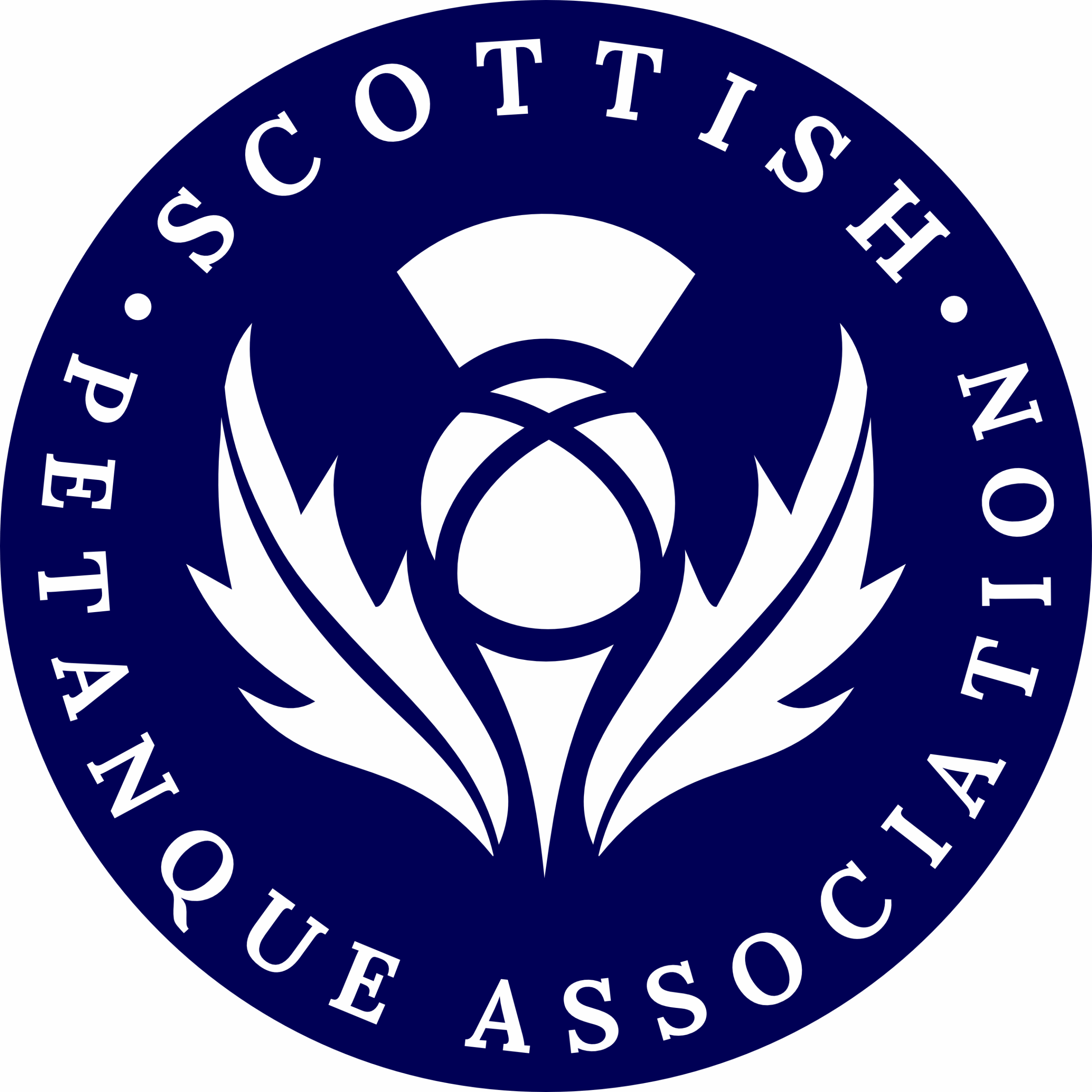Sometimes, our National Umpire, Colin Montgomery, receives emails asking for a clarification of the rules or his opinion about incidents which occur during matches involving our members. Some of these are worthy of print and so, we’ve decided to set up this page, with Q&As. If you want to Ask Monty you can email him here.
Q: I’d to like to ask about a ruling which crept into play in a recent competition. Our opponents complained that my playing partner was “lifting” her feet, to the extent that she just wanted to stop playing & go home! My understanding is that provided her feet remained inside the circle & at no point were completely lifted off the ground then no foot faults were taking place. Am I right?
A: I am a little concerned that your partner in this game was put off so badly she wanted to go home. So I will give you the long answer if i may, bear with me. I will deal with the letter of the laws, the spirit of the laws and thirdly the administration of laws.
Article 6 ; Start of play –rules regarding the circle, 9th section down: The players feet must be entirely on the inside of the circle , not encroach on its perimeter and they must not leave or be lifted completely off the ground until the thrown boule has touched the ground, no part of the body may touch the ground outside the circle.
The spirit of this rule is intended to prevent, among other things, a player (who is trying to get past a front lying boule dead on line) from using one leg as a counter balance to start his shot from the side of the circle or from merely leaping to the side and throwing in mid air, hence the requirement to keep both feet down until the boule has landed. Feet touching the ground means any part of the foot, it couldn’t possibly mean the entire sole area since, if you crouched to point you would need to have a second pair of knees that went the other way! Indeed, the majority of crouch pointers only have the toes touching the ground. So there it is, has your partner fulfilled that requirement? I will presume she has.
The opposition feel dreadfully aggrieved though. What must they do? Who is an appropriate party to verify that their grievance is valid? Not them.
In the absence of an umpire they must alert the person running the competition (who will presumably have a reasonable familiarity with the rule book) and inform him that they suspect that your team may be contravening the requirement set out above in Article 6. This person will be familiar enough with the rules to know that Article 34 (check it out) sets out the penalties after a warning has been issued. Indeed nine out of ten infringements involve a warning from a third party (Umpire or organiser who will have to act as such). This person should observe for a possible infringement and make a decision on what he sees. If he is an organiser he ought to be empowered by the club (I suggest) to dish out warnings and penalties under Article 34 for exactly the reason you describe.I t will avoid teams from being harangued all day for mostly no great reason or for a wrong interpretation of a rule.
Don’t misunderstand me, I am against deliberate rule infringements, I am sympathetic with accidental infringements (which is where the warning system springs from) and I am dead against one team bashing another with a rule book all day. I suggest the third party, given the sole power by the consent of the whole field (right or wrong but consistent) is the way to a peaceful day.
As a postscript, take a close look at Article 16 where it says: During the time allowed for a player to throw a boule the spectators and players must observe total silence. The opponents must not walk, gesticulate nor do anything that could disturb a player about to play. Haranguing a team to the point of them wanting to leave could fall into that category but again you are not an appropriate person to decide so, only a third party can.
I hope I have helped with that one.
Monty
